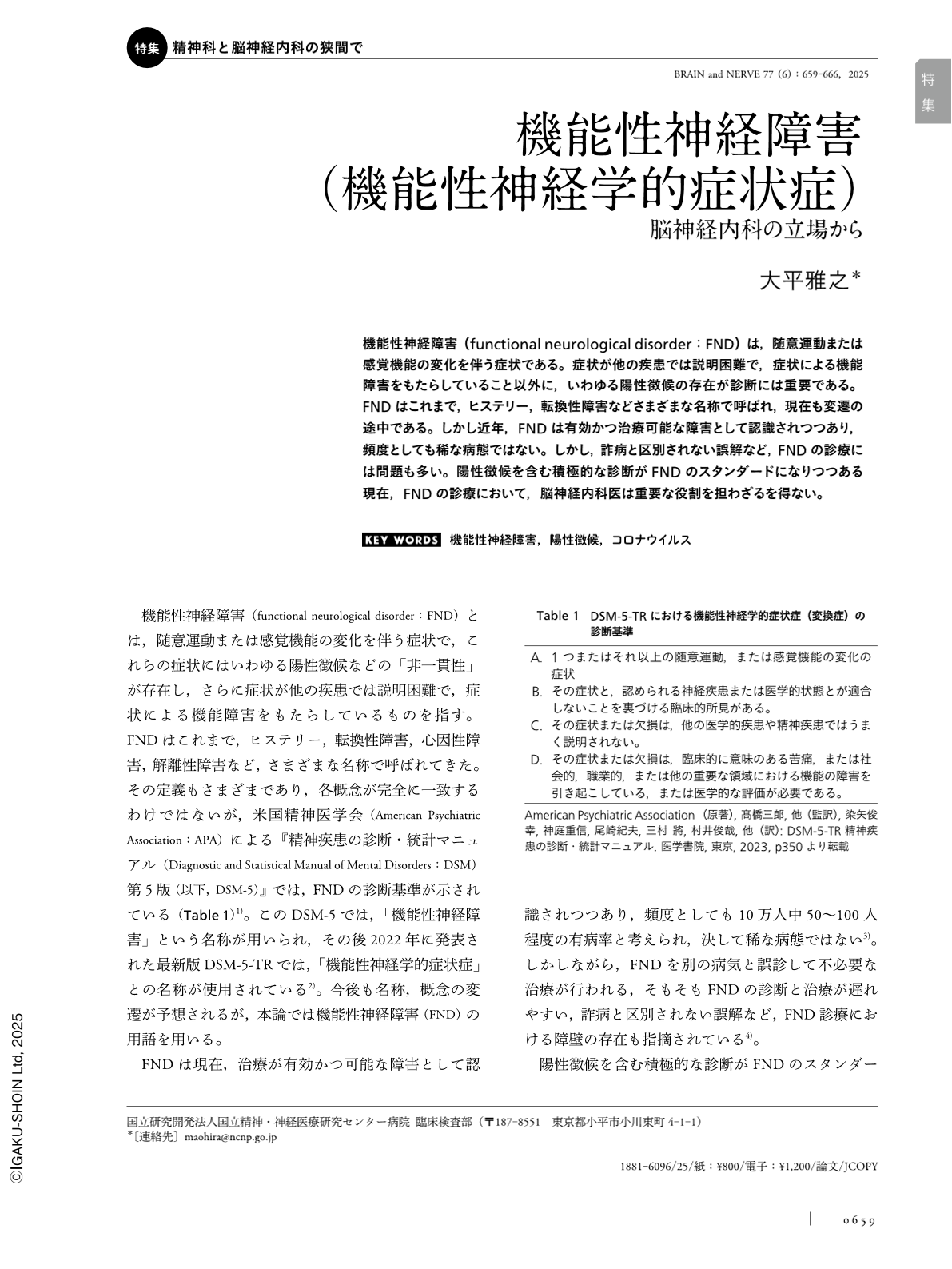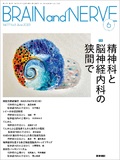Japanese
English
- 有料閲覧
- Abstract 文献概要
- 1ページ目 Look Inside
- 参考文献 Reference
機能性神経障害(functional neurological disorder:FND)は,随意運動または感覚機能の変化を伴う症状である。症状が他の疾患では説明困難で,症状による機能障害をもたらしていること以外に,いわゆる陽性徴候の存在が診断には重要である。FNDはこれまで,ヒステリー,転換性障害などさまざまな名称で呼ばれ,現在も変遷の途中である。しかし近年,FNDは有効かつ治療可能な障害として認識されつつあり,頻度としても稀な病態ではない。しかし,詐病と区別されない誤解など,FNDの診療には問題も多い。陽性徴候を含む積極的な診断がFNDのスタンダードになりつつある現在,FNDの診療において,脳神経内科医は重要な役割を担わざるを得ない。
Abstract
Functional neurological disorders (FND) are frequently observed in neurological clinics. Recently, the approach to this disorder has shifted from a diagnosis of exclusion to a positive diagnosis using so-called “positive signs,” which features various forms of incompatibility. Common risk factors for FND include psychological stressors, which are important for diagnosis. Subtypes of FND are classified according to their symptoms. Four entities-functional seizures, functional movement disorders, persistent perceptual postural dizziness, and functional cognitive disorder-are most recognized by neurologists. These subtypes share similar etiologies and pathophysiologies. Among them, positive signs of functional movement disorders are relatively easy for neurologists to detect. New and effective positive signs, recently reported by Japanese neurologists, should be employed to support a positive diagnosis of FND. Neurologists play a critical role in both the diagnosis and treatment of FND.

Copyright © 2025, Igaku-Shoin Ltd. All rights reserved.


